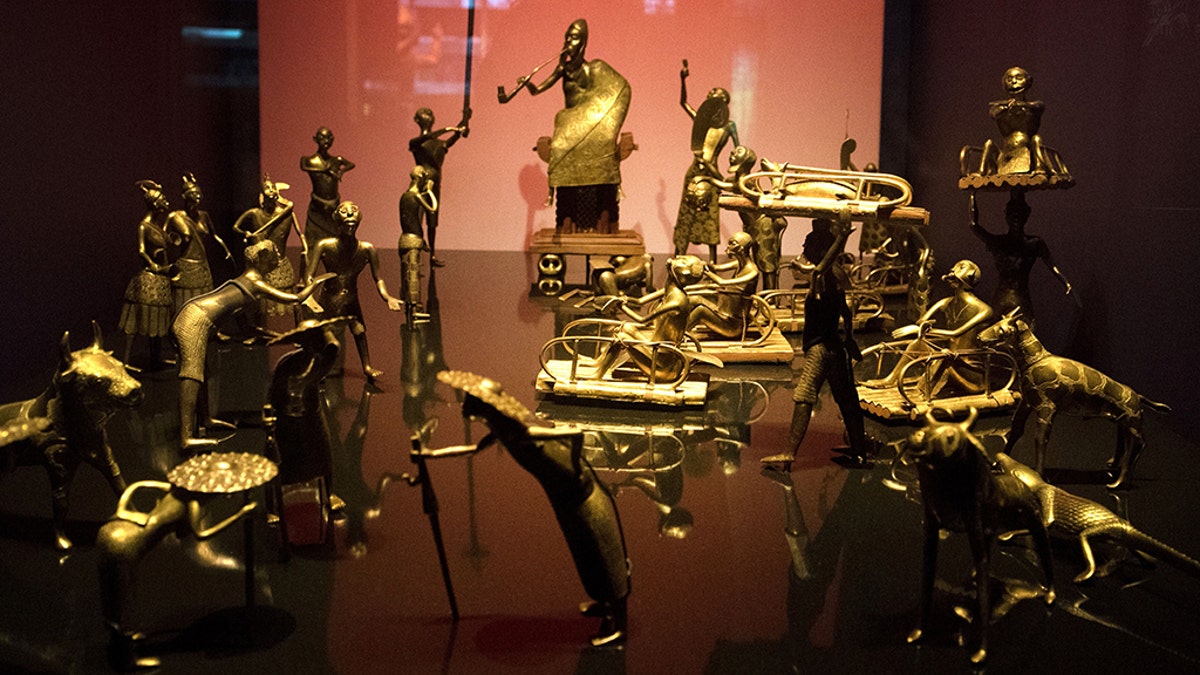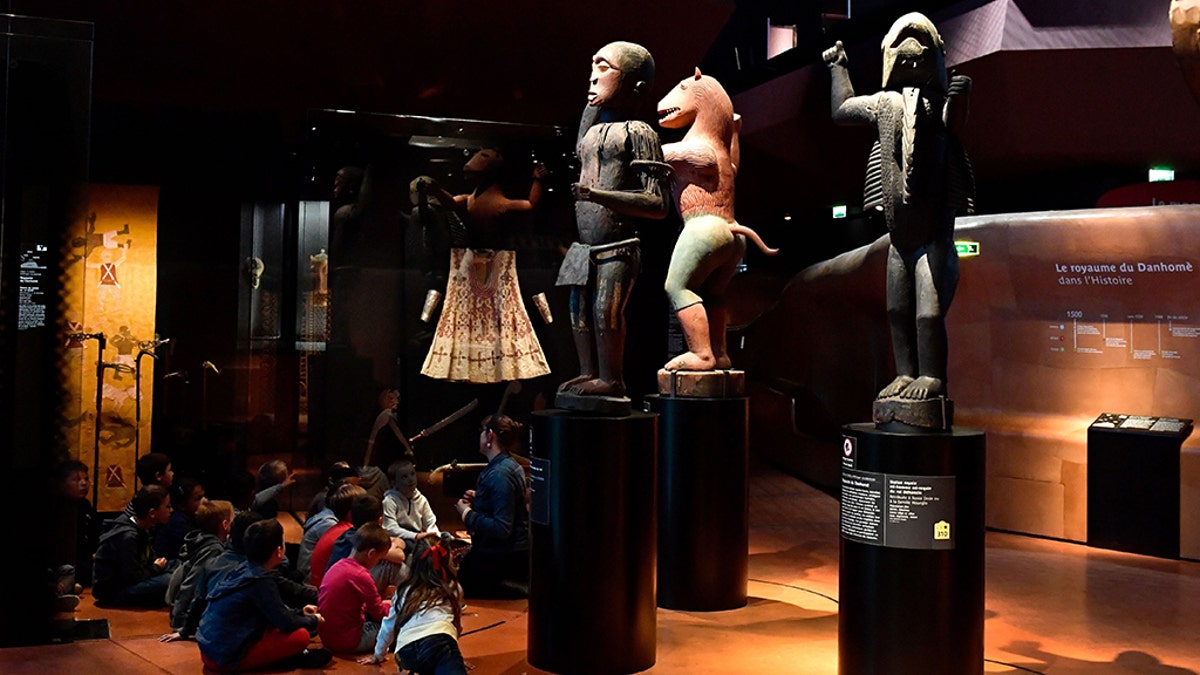
The Ato ceremony of the Kingdom of Dahomey is pictured at the Quai Branly Museum-Jacques Chirac in Paris. (Getty Images)
Museums in Western Europe are starting to reevaluate how to deal with certain colonial-era artifacts added to their expansive collections over the years -- despite being stolen or plundered.
Some of the items reflect periods of history that were, and still are, contested. As the Washington Post reports, some of Europe’s leading cultural institutions are considering whether to return various artifacts to their countries of origin, often in Africa or Asia.
French President Emmanuel Macron nudged things along by proclaiming in Burkina Faso in November that France would work toward the “temporary or permanent restitution of African heritage to Africa.”
MYSTERIOUS GIANT SHARK TRACKED BY SATELLITES, RARE SIGHTINGS
France, as recently as March 2017, had rejected efforts by Benin to reclaim thousands of objects looted in the 1890s from what was then the Kingdom of Dahomey—including royal thrones, scepters and statues showcased at the Musee du Quai Branly in Paris, the Post reported.
“Their restitution is not possible,” the French government said at the time, according to French newspaper Liberation.
Macron’s election in 2017 prompted a different policy.
“I cannot accept that a large part of cultural heritage from several African countries is in France,” Macron said during the Burkina Faso visit. “African heritage cannot just be in European private collections and museums.”

Benin has asked for the return of statues and other artifacts from the Kingdom of Dahomey on display at the Musée du Quai Branly in Paris. (Getty Images)
In London, the Victoria and Albert Museum in April staged an exhibit of objects that included a gold crown and chalice taken by the British army from Ethiopia in 1868.
NORTH CAROLINA COUPLE SPOT MASSIVE MEGALODON SHARK TOOTH ON BEACH
“Even at the time, this episode was regarded as a shameful one,” the museum noted.
Ethiopia filed a claim for the artifacts in 2008. But this year, the V&A director floated the idea of returning the objects under a long-term loan agreement.
Meanwhile, the German Lost Art Foundation, which was established to support probes of Nazi-looted art, said in April that it would expand its mandate to include artifacts from other colonies as well, according to the Post.
For 2019, Germany reportedly has set aside $3.5 million to help museums determine the origins of possibly illegal or illegitimate artifacts.
Although all of this seems to suggest that attitudes are changing, some art analysts have said it may not lead to much of an overhaul of Europe's collections -- since there has been more talk of long-term loans and less talk of fully and permanently returning artifacts.




















